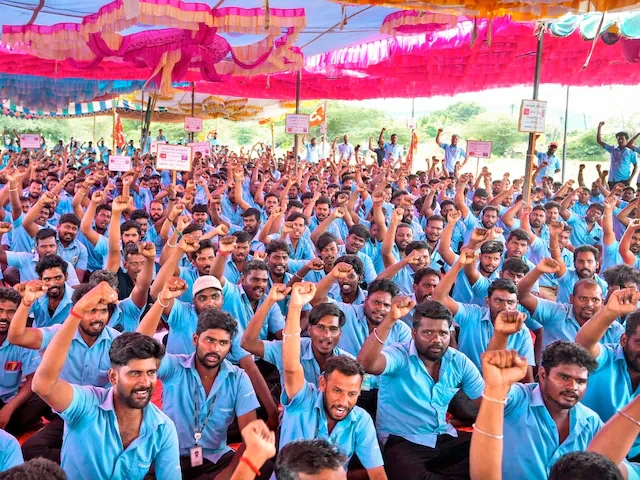Samsung India workers end month-long strike, return to work

Stay tuned with 24 News HD Android App

Samsung Electronics workers in southern India have ended a month-long strike over pay and working conditions after "welfare measures" were agreed, the state industry minister said Tuesday.
Samsung "announced several welfare measures in the interest of the workers", Tamil Nadu state minister T.R.B Rajaa said in a statement.
"The strike at the Samsung factory has come to an end, and all the workers are resuming work."
A spokesperson for Samsung India welcomed the decision to end the work stoppage, saying: "We will not take action against workers who merely participated in the illegal strike.
"We are committed to work closely with our workers to make the Chennai factory a great place to work."
India is the world's most populous country and its growing middle class is an important growth market for Samsung, a company whose output accounts for nearly a quarter of South Korea's GDP.
The consumer tech giant had promised the industrial action, which began on September 9, would not impact consumers.
Hundreds of Samsung employees took part in the strike at a plant outside the southern city of Chennai that employs around 1,800 workers to build televisions, refrigerators and other consumer goods.
The strike marked the conglomerate's latest outbreak of employee discontent, with thousands of unionised workers striking in South Korea in July over pay and benefits.
India has pitched itself as an emerging manufacturing hub to tech giants seeking to diversify production away from China, owing to geopolitical tensions with the United States and other economic challenges.
Google this year began manufacturing its flagship Pixel 8 smartphone in India while Taiwanese electronics giant Foxconn, a principal assembler of Apple iPhones, is establishing a major phone assembly plant near the southern tech hub Bengaluru.
Samsung already operates what was billed on its opening as the world's largest mobile phone factory on the outskirts of New Delhi, with a capacity of about 120 million units per year.
